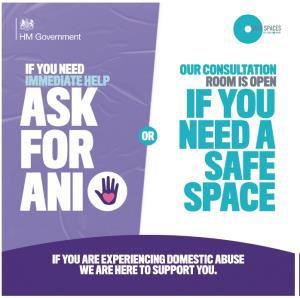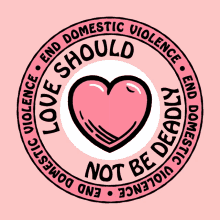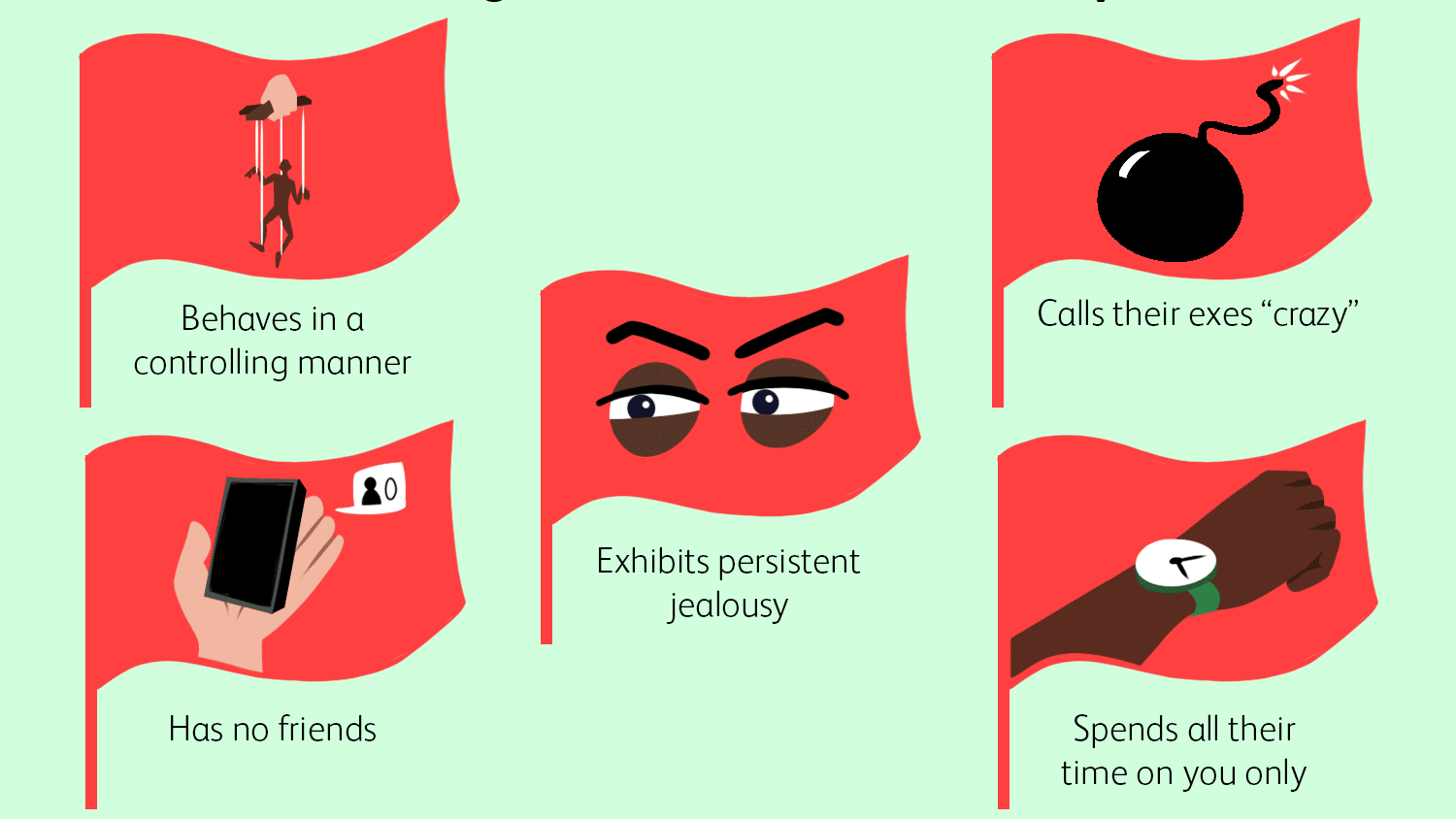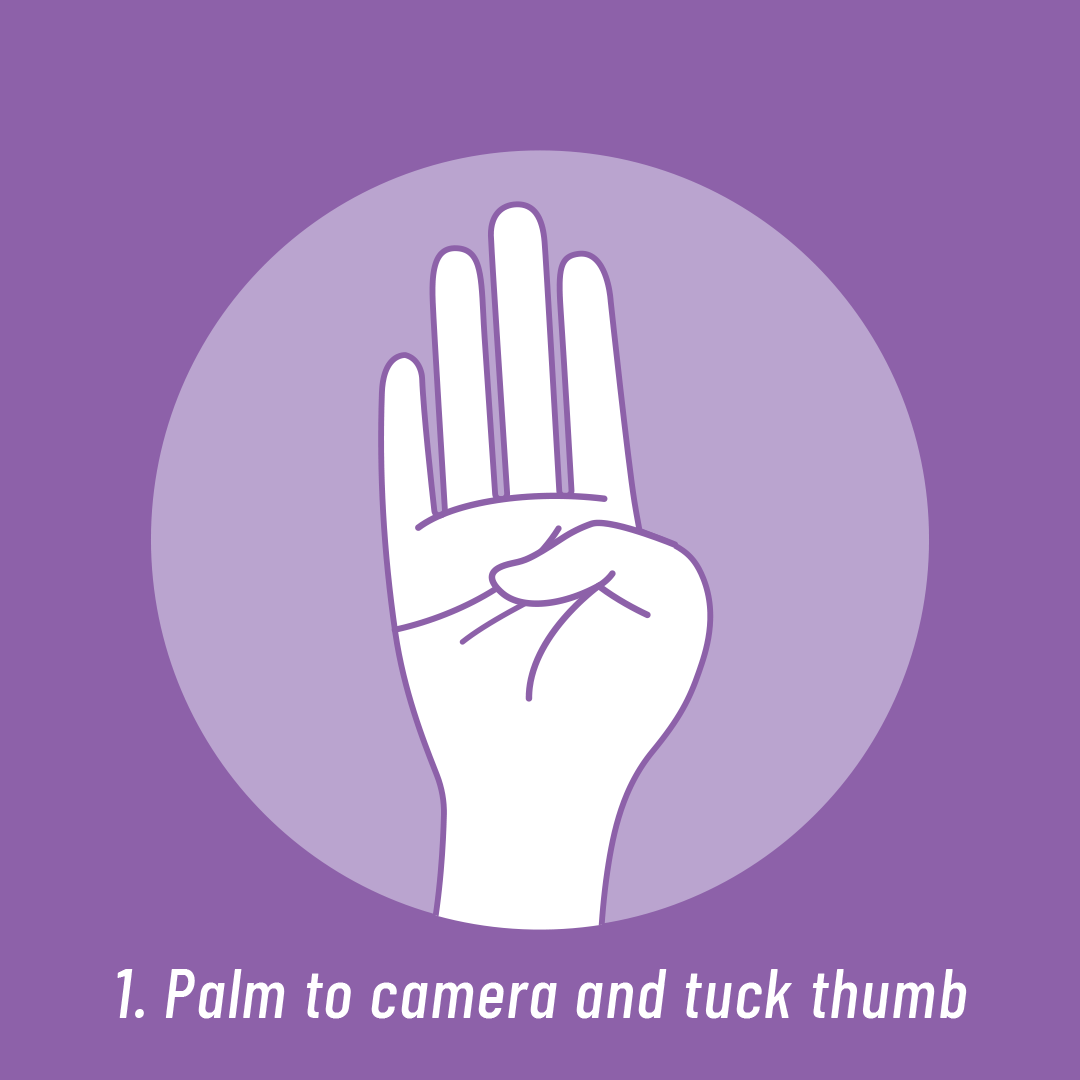DOMESTIC ABUSE
WHAT IS DOMESTIC ABUSE?
Domestic abuse is any incident or pattern of incidents of controlling, coercive, threatening behaviour, violence or abuse between those aged 16 or over who are or have been, personally connected to each other.
Children are victims of domestic abuse if they see, hear, or experience the effects of the abuse, and are related to either of the parties over 16 years. Behaviour is “abusive” if it consists of any of the following:
-
Physical violence or abuse
-
Sexual violence, coercion, pressure to engage in acts of sex that you don’t want to
-
Violent or threatening behaviours
-
Controlling or coercive behaviours
-
Economic abuse
-
psychological, emotional, or other abuse
WHAT ARE THE SIGNS?
Many people try to cover up the abuse for a variety of reasons, and learning the warning signs of domestic abuse can help you help them:
-
Physical Signs: e.g. Black eyes, Busted lips, Red or purple marks on the neck, Sprained wrists, Bruises on the arms,
-
Emotional Signs: e.g. Low self-esteem, Overly apologetic or meek, Fearful, Changes in sleeping or eating patterns, Anxious or on edge, Substance abuse, Symptoms of depression, Loss of interest in once enjoyed activities and hobbies, Talking about suicide
-
Behavioural Signs: e.g. Becoming withdrawn or distant, Cancelling appointments or meetings at the last minute, Being late often, Excessive privacy concerning their personal life, Isolating themselves from friends and family
WHAT MAKES 'THE DOMINATOR' WANT CONTROL?
The behaviour of The Dominator is based upon his beliefs. This applies to us all. All our actions are motivated by our beliefs. We often see our beliefs as facts but in truth, we do not actually know what we believe!
WHAT TYPES OF ABUSERS ARE THERE?
The Bully – He/she uses intimidation to control their partner by shouting, glaring, sulking, driving too fast and firing questions at them without giving them a chance to answer. As a result, they believe he/she is angry and tries to placate them. But The Bully is not angry! They are cool, calm and collected and completely in control of their emotions. What does he/she have to be angry about.
The Headworker – The Headworker uses emotional abuse to control their partner. They may tell her/him they are ugly, stupid, or fat. He/she may never use physical violence. He/she may never need to! He/she has all the control they want and needs by being coercively controlling and emotionally abusive to the point where he/she will lose all self-confidence and self-esteem.
The Jailor – isolates their partner by sulking whenever she has friends over or her family. He/she will refuse to ‘babysit’! the children when their partner has arranged to go out or go to work. They are the life and soul of every party and charming to everyone they meet. Thereby making their partner feel that they will not be believed if they tell anyone of his abuse.
The Liar – makes the abuse appear less than it actually is. “It was only a slap! The Liar will blame everyone else and everything else for their abuse. Drink, drugs, depression, work, stress – HER!HIM! they will deny there is any abuse and they are extremely believable!
The Badfather – The Dominator uses the children to further abuse his partner. Even after separation, he will use the family courts to harass her for contact with the children. Often, it is not about the children. He is not interested in them! It is simply a further means of controlling his ex-partner. He will make threats that Social Services will take the children away if she leaves him because she won’t be able to cope. He will undermine the mother by overruling any discipline she may give so that they do not listen to her or do as they are told. Where the perpetrator is female they can use the children as a weapon against the other parent. Denying paternity. Withholding contact or poisoning the children.
WHAT CAN HELP?
'Self-help' tips don't solve the issue. However, they can help you/others feel more in control when experiencing strong emotions.
If you find that 'self-help' isn't enough, consider reaching out to a counsellor or your GP for help managing overwhelming emotions.
01
Have a safety plan, if you need to escape contact a specialist domestic abuse service for assistance. You are at a higher risk of harm when you are planning to leave.
02
Make sure your phone is always charged and have copies of important documents kept somewhere easily accessible.
03
If possible work with a local agency that specialises in providing support to victims of domestic abuse. They can help you plan when you are leaving and also where you can safely leave to
04
Safe Spaces are also available in Boots, Morrisons, Superdrug and Well pharmacies, TSB banks and independent pharmacies across the UK. Once you are inside, specialist domestic abuse support information will be available for you to access. Many Safe Spaces are also prepared to respond to the ‘Ask for ANI’ codeword, to provide victims with a discreet way to access help calling the police on 999 or specialist support services.
05
If you are concerned that a new, former or existing partner has an abusive past you can ask the police to check under the Domestic Violence Disclosure Scheme (also known as ‘Clare’s Law’). This is your ‘right to ask’. If records show that you may be at risk of domestic abuse, the police will consider disclosing the information. A disclosure can be made if it is legal, proportionate and necessary to do so.
06
If you are concerned about a friend or family member, you can apply for a disclosure on behalf of someone you know.
07
If you’re a victim of domestic abuse you can apply for a court order or injunction to protect yourself or your child from:
-
your current or previous partner
-
a family member
-
someone you currently or previously lived with
This is called a non-molestation or occupation order. You can apply online, by email or by post
08
It is not as easy to walk away from relationships regardless of if they are violent. It is important to remember that you are a victim and that you are not to blame. It's important if you support someone that you listen to them without judgement
09
Get help to create a safety plan that can be put into action if violence occurs again or if you decide to leave the situation. Just the exercise of making a plan can help visualise which steps are needed and to prepare psychologically to do so.
10
Know that you are not alone. You may feel isolated and that no one will believe you or understand you. Reach out, there will be someone to guide you along the way.
11
If you are immediate danger always call 999.
The King of the Castle – controls their partner by treating them like an unpaid servant. they expect them to do all the household chores and not lift a finger to help. If she/he insists they do something to help around the house, they will do it so badly that they won't ask to do it again! controls all the money. The benefits are all in their name and the partner has to ask if they want money for food shopping or the children’s school uniforms.
The Sexual Controller – uses sex to control. He rapes her. He may reject her which makes her feel unwanted and undesirable. Where a female is a perpetrator they may threaten their partner to take part in sexual acts and be compliant or they will make false rape allegations. They may belittle them as males and make them look weak or incompetent
The Persuader – This persona usually comes into play if the other party wants to leave the relationship or threatens to. they will say they are sorry, that it will not happen again. That they will get help. They will cry. They may threaten suicide and make the other person will feel so guilty and fearful of these threats that they will take him back.
EXPERIENCING GRIEF:
It is very usual for those who have fled domestic abuse to go through a grieving process. They will grieve the person that they initially fell for in the beginning along with the positive memories that are held, however few and far between. Abuse and violence rarely start from the offset of a relationship and so people are given a glimpse of what could have been. This is of course an act to draw a person in and so when the relationship ends a person will be left grieving for something that would never have been. It can create all sorts of instability around how real a relationship was, if there ever was real love, was I used by that person? That makes the processing of the situation all the more difficult to accept, along with the fact that the person you are grieving isn't in fact deceased which means any contact or sightings of the person can keep you in the cycle of grief.
THE RECOVERY PROCESS:
The recovery process is difficult. Because nobody tells you that you still have to grieve. You don’t know that you have to mourn the death of the future you pictured. You have to go through the five stages of grief for someone who’s still alive. Denial, anger, depression, bargaining, and acceptance all apply to losing who you thought was your forever love. It is also possible that you are recovering the self that you had to bury in order to survive which makes this a complicated grief process. Many people experiencing domestic abuse will have great difficulty knowing who they are anymore.
Society is not always accepting of the process when a person has fled an abusive relationship. They are often told to get over themselves and get on with it. People question why they are finding it so hard to cope now that they are free of an abuser. For this reason, the grieving process is carried out behind closed doors, often with little support from others.
-
Denial usually happens while you’re still in the relationship. You’ll deny that this is abuse. Because they love you because they said they were sorry because they were drunk. These excuses are you denying the hard truth—that the life you were planning is dead and gone.
-
Anger and depression can mix. They can be on and off; they can start while you’re still with them and last long after they’re gone. Depression can last through all other stages of grief even after acceptance. Your anger might be at them; you might be furious. How dare they lay their hands on me. What gives them the right to destroy me, take away my entire being with their fists? You might feel angry at your friends and family, or at yourself for staying so long. It’s normal and healthy to be angry.
-
Bargaining. You start trying to negotiate with yourself. In your head, it might sound something like, “I could give them one last chance, if they ever do it again, I swear I’ll be done. They’ve changed now.” It might sound like a good idea now. You think it’ll take away the anger and depression, but let me ask you this: What if you don’t survive this time? What if this one last chance is really the last chance? What if this is the last chance you have to save your own life? The bargaining is what usually puts us back in the same situation, and we start the entire process of grief over again.
-
Finally, you’re ready for acceptance. This stage usually won’t come for a long time. It could be months or years before you’re ready to accept the death of your love and the death of who you were before the abuse. It’s also the most freeing feeling in the world. This is the stage where you finally feel like a person again. Their words and their hands may have made you feel inhuman; they made you feel small and took away your sense of feeling safe in your own skin. This is where you reclaim yourself. This is the time of reckoning; this is your survival.
EXTERNAL INFORMATION, SUPPORT AND ADVICE






















































 |  |  |
|---|---|---|
 |  |  |
 |  |  |
 |  |  |
 |  |  |
 |  |  |
 |  |  |
 |  |  |
 |  |  |
 |  |  |
 |  |  |
 |  |  |
 |  |  |
 |  |  |
 |  |  |
 |  |  |
 |  |  |
 |  |  |
 |  |  |
 |  |  |
 |  |  |
 |  |  |
 |  |  |
 |  |

